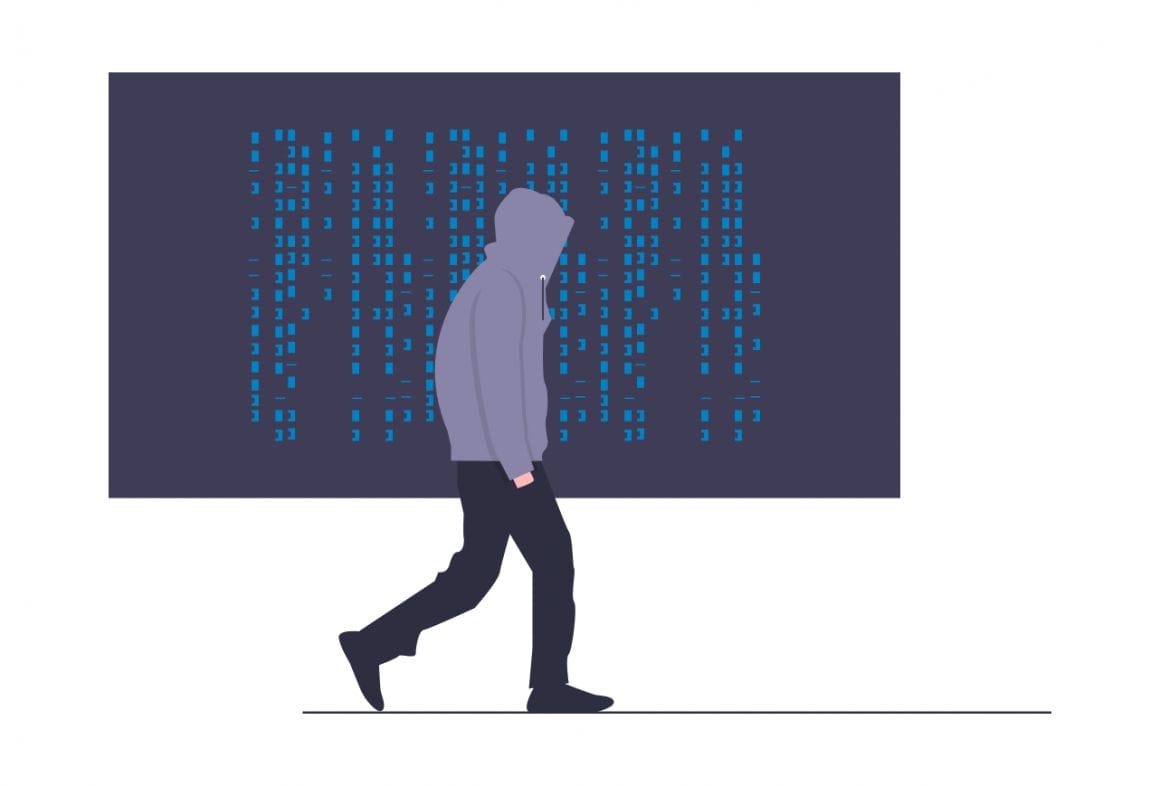Why Is Data Protection Fundamental For Remote Businesses?
By 2024, there will be more than 94 million workers who work remotely, an increase of 15 million since 2020. The COVID-19 epidemic, environmental concerns, growing fuel prices, and individual choices have all contributed to this growth.
As you already know, remote work provides many advantages for both the employee and the employer. Regrettably, it also makes it more difficult to protect a company’s data assets and IT environment. The constant threat posed by cybercriminals and the need to support a mobile workforce is mandatory and not a choice. You want to ensure that sensitive data is kept secure, preventing unauthorized access to your information.
If you want to improve your secure data management to keep your company and employees’ data safe and secure, keep reading! Here you’ll find ideas on remote data security solutions and policies.
Data Protection & Remote Work in Numbers: Stats That Matter
Remote work isn’t all sunshine and rainbows when it comes to data protection.
A survey revealed that 20% of respondents faced a security breach because one of their remote workers couldn’t handle cybersecurity challenges.
A survey published by Deloitte reported that 25% of respondents received more phishing emails when working from home. Statistics like these show why a company needs to take proper actions to avoid data breaches.
How to Protect Business Data? 6 Practical Tips
Businesses require a rigorous strategy to handle cybersecurity in remote work situations. Here is how a business with remote teams can maintain continuous data protection by taking the following actions:
1. Develop a Cybersecurity Policy
Companies should create a thorough data protection policy as their first step in cybersecurity. A data protection policy should mention how personnel will manage and safeguard sensitive data.
Workers should be asked to examine the policy regularly and confirm that they are familiar with its specifics. The security policy needs to be revised frequently to account for environmental changes and new threats.
Here are some tips on developing a cybersecurity policy for your company:
- Develop guidelines for creating strong passwords.
- Identify protocols for implementing email security.
- Create frameworks for handling sensitive information.
- Implement rules about sharing information on social media.
- Set rules for proper handling of gadgets and tech tools.
- Keep your cybersecurity policy updated according to the trends.
2. Train Your Employees
A huge portion of data breaches is caused by human mistakes. Employee training that is done properly helps lessen the likelihood that a company’s network will be compromised by cybercriminals.
You should teach your employees how to spot phishing emails that try to trick them into divulging login information. Make them aware of the dangers of using unprotected network connections, logging into corporate computers using personal devices, and using obvious passwords.
Reviewing the company’s cybersecurity policy and going over the specifics of the procedures and methods it contains should be part of the training.
3. Use Secure Networks
Your remote teams must use Secure Internet connections to avoid cybersecurity threats. You should encourage your employees not to access your company’s data from the Public WiFi of a coffee shop.
VPN is one of the cybersecurity tools remote companies must have. A virtual private network (VPN) should be used by every member of the mobile workforce, at the very least.
‘Not only does a VPN secure login information that might be stolen from an open network connection and encrypt data transmission, but it also hides your IP address, adding another layer of online anonymity. To maximize internet speed and protection, encourage your employees to use Ethernet.
4. Use Strong Passwords
Brute-force cyberattacks can be launched against systems and devices using simple passwords that are easy to guess. You should encourage your remote teams to follow a strict password policy to avoid such attacks.
Long and complex passwords are crucial for securing computing resources, despite how uncomfortable they may seem. Your company’s cybersecurity policy should highlight the importance of using secure passwords.
Encourage your employees to create unique passwords for each account and avoid using the same passwords for different accounts.
5. Regular Data Backup
For all remote users, a cloud data protection solution should be implemented. Data backup from a mobile workforce serves several crucial functions, such as:
- Backups guard against data loss brought on by malicious software infection, unintentional deletion, and lost or broken mobile devices.
- Backups grant immunity against cybercrimes that may try to lock data resources and disrupt system availability.
- Backups allow data to be stored in a centralized repository, making it possible for authorized users to access data from anywhere.
6. Use of Antivirus Software
Businesses are now more vulnerable to cyberattacks than ever before. You need to keep your business information safe to ensure that your valuable data doesn’t get stolen by hackers. Installing an antivirus program on your computer is the easiest solution to help you avoid data breaches. You can select an antivirus for Windows, to keep your laptop good and secure.
Here, we have discussed six common types of malware programs you can avoid by using an antivirus:
Types of Malware We Can Avoid with Secure Data Solutions
| Type of Malware | Description |
| Viruses | The most prevalent form of malware is viruses, which can seriously harm your computer if left unchecked. They can spread from computer to computer and are frequently used to steal or delete data. |
| Worms | While worms can spread without user participation, viruses cannot; they are comparable. Botnets, which are networks of compromised computers that may be used to launch attacks or send spam, are frequently made using them. |
| Trojans | Trojans are forms of malware that impersonate trustworthy applications in an effort to deceive users into installing them. Once installed, they provide hackers access to your computer and the ability to steal your personal data. |
| Ransomware | Malware, known as ransomware, encrypts your files and demands a ransom in exchange for decrypting them. The attackers will typically want payment in order to decrypt your files, but even if you pay, there is no assurance they will do so. |
| Spyware | Spyware is a type of software that is used to gather sensitive data about you, including passwords, credit card numbers, and surfing patterns. It is used to keep tabs on your activities and movements as well. |
| Adware | Malware, known as “adware,” causes unsolicited advertisements to appear on your computer. It can be used to gather your personal information but is frequently used to bring in money for its founders. |
The 7 Principles of Data Protection
Here are the seven principles developed by GDPR that can help you process all your business data according to legal guidelines:
- Lawfulness, fairness, and transparency
Businesses need to create transparent frameworks that allow data subjects to know if their data is being collected according to legal guidelines.
- Purpose limitation
Businesses can only use data for the purposes that data subjects agree upon, and no further processing of data is legal.
- Data minimization
Businesses can only use the data gathered from data subjects for certain needs and cannot use it for untold reasons.
- Accuracy
Businesses need to collect reliable data for any of their needs to ensure that they can make proper decisions.
- Storage limitation
Businesses need to tell their customers about how long they will store the data and how data will be treated for archives etc.
- Integrity and confidentiality (security)
Businesses will ensure not to provide access to the data they’ve gathered to any unauthorized person or organization.
- Accountability
Businesses that gather data from their customers will only do so if they comply with the regulatory guidelines.
Start Protecting Your Business Data Today!
The more proactive your company is when it comes to protecting remote workers, the easier it will be to avoid cyber attacks. As a business owner, you need to update your IT policy and equip your staff with the necessary knowledge and resources to keep your data safe.
Make sure you follow the information mentioned above to ensure that you can stop hackers from accessing your sensitive data.






